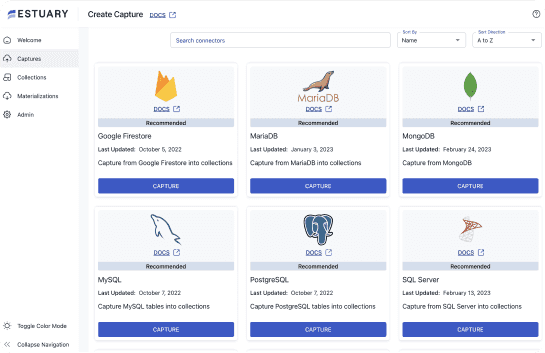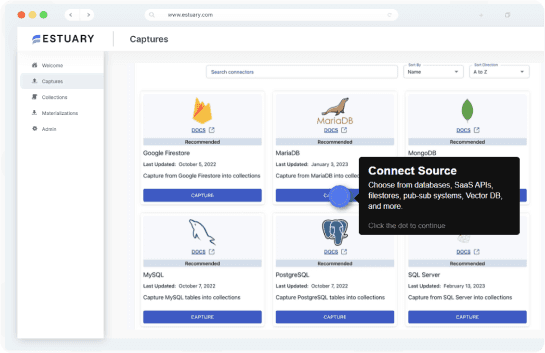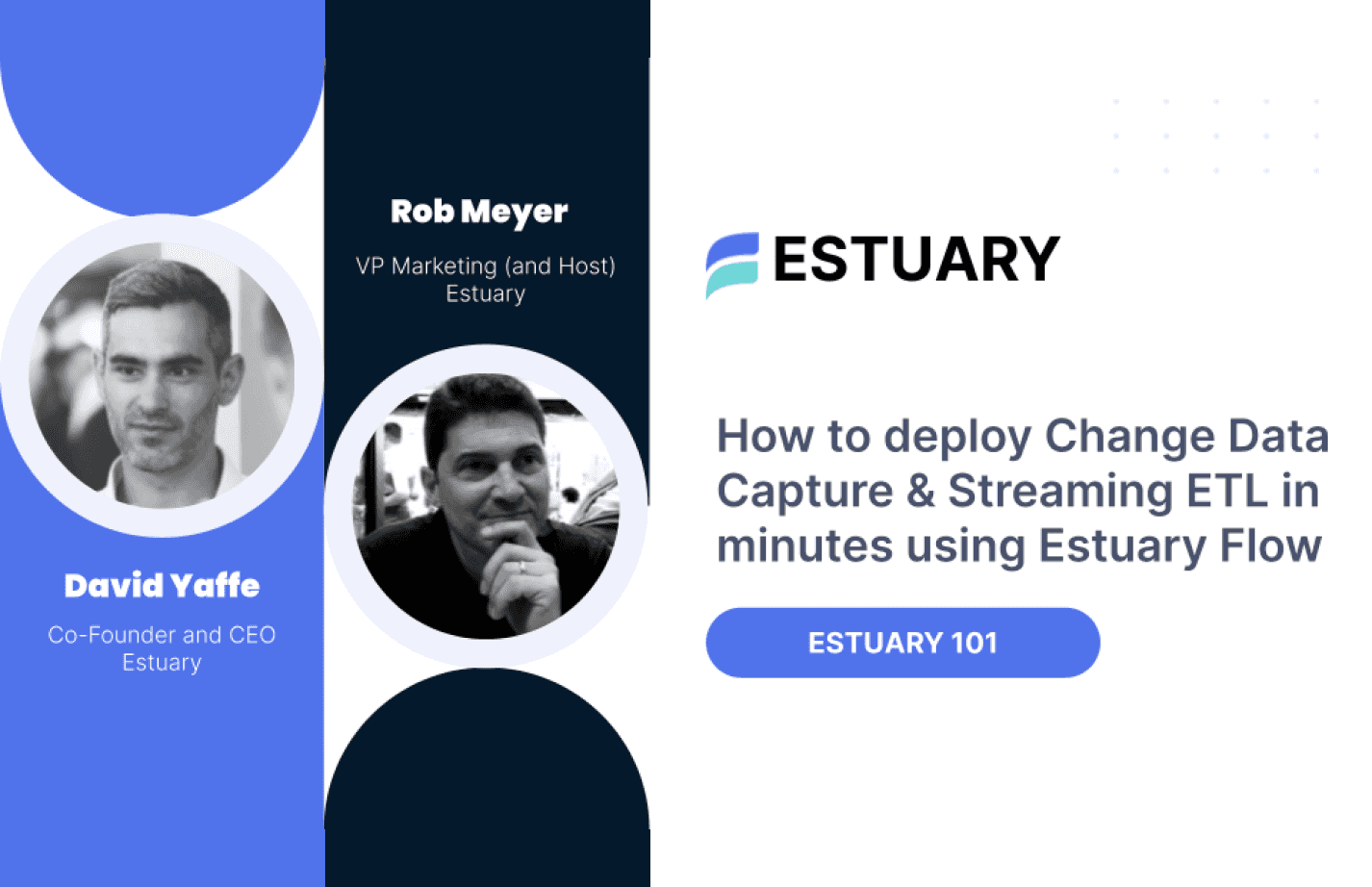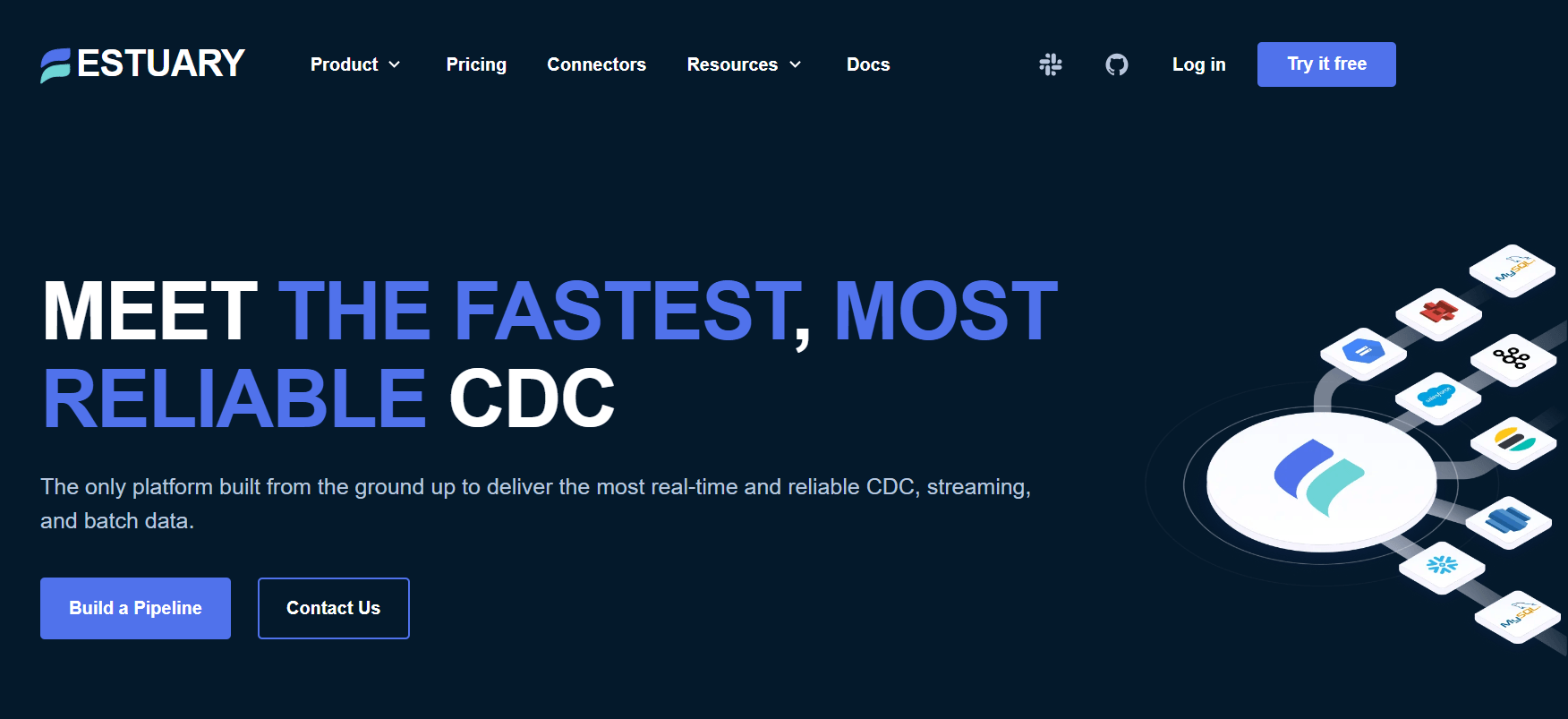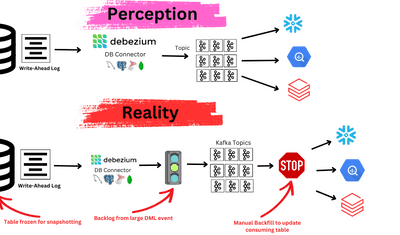
The diversity and complexity of data sources have skyrocketed in recent years. Traditional data integration methods often struggle to manage the sheer volume, variety, and velocity of information, leading to inefficiencies and delays. Cloud ETL tools offer an effective solution to these challenges, transforming the way businesses handle data.
The advent of cloud ETL tools and data integration tools has revolutionized data management, providing a more advanced, scalable, and streamlined approach to data integration in today’s fast-paced digital landscape. However, with so many options available, selecting the right cloud ETL tool can be a daunting task.
This article offers an in-depth guide to the 16 best cloud ETL tools of 2025, thoroughly analyzing each tool’s features, capabilities, and advantages. By the end, you’ll be equipped to choose the perfect tool to streamline your ETL processes and meet your business needs. Let’s start by exploring what Cloud ETL is and how it works.
What is ETL?
ETL (Extract, Transform, Load) is the backbone of data integration. It's a three-step process designed to collect raw data from disparate sources, refine it into a usable format, and deliver it to a central repository, often a data warehouse. To explore the best solutions for this process, check out our guide on the top ETL tools.
- Extract: Data is pulled from various sources, such as databases, applications, APIs, flat files, and more. This step involves connecting to different systems, extracting the relevant data, and preparing it for the next stage.
- Transform: This is where the magic happens. Raw data is cleaned, standardized, validated, enriched, and aggregated to ensure quality and consistency. Transformations can range from simple formatting adjustments to complex calculations and aggregations.
- Load: The transformed data is then loaded into a target destination, typically a data warehouse. This provides a centralized, structured repository where data can be easily analyzed and used for decision-making.
What is Cloud ETL?
Cloud ETL takes the traditional ETL process and supercharges it with the power of the cloud. Instead of relying on on-premises hardware and software, cloud ETL leverages cloud infrastructure and services to handle data integration.
Key Advantages of Cloud ETL:
- Scalability: Easily scale up or down to handle fluctuating data volumes and processing demands.
- Flexibility: Quickly adapt to changing business needs and integrate new data sources without major infrastructure changes.
- Cost-Effectiveness: Pay for only what you use, eliminating the need for upfront investments in hardware and software.
- Accessibility: Access your data and ETL pipelines from anywhere with an internet connection.
- Managed Services: Offload the burden of infrastructure maintenance and upgrades to your cloud provider.
- Advanced Analytics: Leverage cloud-based analytics tools and machine learning capabilities for deeper insights.
Cloud ETL Features:
Cloud ETL platforms typically offer a rich set of features, including:
- Pre-built Connectors: Seamlessly connect to various data sources and destinations.
- Visual Interfaces: Build and manage data pipelines without writing code.
- Data Transformation Tools: A wide range of transformations to clean, standardize, and enrich your data.
- Automated Scheduling: Run your ETL processes on a predefined schedule or in response to triggers.
- Monitoring and Alerting: Track the health of your pipelines and receive alerts for any issues.
Why Cloud ETL Matters?
Cloud ETL has become increasingly popular as organizations seek to streamline their data operations, gain faster insights, and reduce costs. By leveraging cloud infrastructure, businesses can unlock the full potential of their data and make more informed decisions, faster.
Types of ETL Tools
Enterprise-Grade ETL Tools:
- Comprehensive, feature-rich solutions designed for complex data integration scenarios.
- Often used by large enterprises with high data volumes and complex requirements.
Open-Source ETL Tools:
- Free or low-cost tools with a high degree of flexibility and customization.
- Typically require more technical expertise to set up and maintain.
Cloud-Native ETL Tools:
- Designed specifically for cloud environments, often integrated with cloud data warehouses and data lakes.
- Offer seamless scalability and pay-as-you-go pricing.
Custom ETL Tools:
- Custom ETL tools are designed to meet the specific data integration challenges of an organization. These tools are tailored to align with the company's unique needs, offering enhanced flexibility and control over the entire data pipeline.
Importance of choosing the right tool
The right cloud ETL tool isn't just about technical features; it's about making a tangible impact on your business. Choosing the wrong tool can lead to:
- Bottlenecks: Slow and inefficient data pipelines hinder decision-making.
- Inaccurate Insights: Poor data transformations can result in misleading conclusions.
- Wasted Resources: Investing in a tool that doesn't scale with your needs is costly.
- Missed Opportunities: Failing to leverage real-time data can leave you behind competitors.
The right tool, on the other hand, empowers your organization to:
- Make Data-Driven Decisions: Access accurate, up-to-date information.
- Improve Operational Efficiency: Streamline data workflows and reduce manual tasks.
- Drive Innovation: Unlock new insights and opportunities hidden within your data.
Top 16 Cloud ETL Tools
Let's dive deeper into the top 16 cloud ETL tools in 2025 and explore their features, benefits, and pricing to help you choose the best ETL software solutions that align with your business needs.
1. Estuary Flow
Estuary Flow is a powerful cloud ETL tool offering businesses a robust solution for quick and reliable data integration. It provides fully-managed solutions for Change Data Capture (CDC) and Extract, Transform, Load (ETL) pipelines powered by streaming SQL and TypeScript transformations. With its cloud-native architecture, Estuary Flow simplifies complex data integration processes, making it an ideal choice for modern data workflows.
Estuary Flow Features
- Real-time database replication: Flow creates exact copies of data in real-time, supporting databases with 10 TB+ storage.
- Scalability: It can handle active workloads at up to 7GB/s change data capture (CDC) from databases of any size.
- Streaming ETL: Flow's real-time ETL capabilities guarantee the data in your warehouse is consistently up-to-date and readily available.
- Automation: Flow automates schema management and data deduplication, eliminating the need for extra scheduling or orchestration tools.
- Accuracy & control: Flow gives users full control over their data pipelines. With built-in schema controls, you can customize your pipelines to ensure accuracy and consistency.
- Pre-built connectors: Flow provides over 200 pre-built connectors to facilitate easy integration with various data sources and destinations. If your connector isn’t available, you can even request a new one.
- Streamlined data migration: Flow ensures the near-instantaneous movement and transformation of your data from its source to the target destination. It is compatible with various cloud platforms, databases, and SaaS applications and can cater to a wide range of operational requirements.
Pricing
Flow offers 3 pricing plans:
- Free: Up to 2 tasks and 10 GB/month.
- Cloud ($0.50/GB): change data moved +$.14/hour/connector
- Enterprise (Custom pricing): For large or custom deployments of Flow.
2. Informatica PowerCenter
Informatica PowerCenter is a robust, cloud-native platform for data integration. This high-performance platform can be used in a diverse array of applications, from data warehousing and analytics to application migration and data governance, forming the cornerstone of your data integration initiatives.
Informatica PowerCenter Features
- User-friendly automation: It provides codeless, easy-to-use tools with a selection of pre-built transformations.
- Superior scalability: It’s a highly scalable solution that offers grid computing, distributed processing, high availability, and adaptive load balancing.
- Advanced data transformation: It excels in unlocking the potential of non-relational data types like XML and JSON.
- Operational oversight: It features monitoring tools that help enforce coding best practices and mitigate future issues.
Pricing
- Data Loader: Free plan. Unlimited rows/hour.
- Cloud Data Integration: Free plan. Up to 20M rows/10 compute hours/month.
- Cloud Data Integration: Pay-as-you-go. Unlimited rows/compute hours.
- Intelligent Data Management Cloud: Contact the team for further info.
3. Talend
Talend provides a comprehensive solution for your data integration and ETL needs. You can build fundamental data pipelines quickly and easily. It also offers graphical profiles of your data and efficiently manages files.
Talend Features
- Seamless connectivity: The tool offers connectivity to over 900 different databases, files, and applications, ensuring your data sources are well accommodated.
- Cloud compatibility: It integrates with major cloud platforms like Amazon Web Services, Microsoft Azure, Google Cloud Platform, Snowflake, and Databricks.
- Compliance standards: It adheres to various compliance standards including ISO/IEC 27001, SOC 2 Type 2, HIPAA, GDPR, Cyber Essentials Plus, and CSA STAR.
- Advanced scheduling and monitoring: The tool comes equipped with advanced scheduling and monitoring features to manage your data operations efficiently.
Pricing
Contact the Talend team for tailor-made plans.
4. Hevo Data
Hevo Data is one of the leading open-source ETL tools. It is a cloud-based, no-code data pipeline solution with ETL functionality for efficient data integration and management across all your systems. It provides easy data collection and reporting capabilities that can help your business ensure that accurate and real-time data is always available.
Hevo Data Features
- Data blending: You can extract, transform, and load data from various platforms into a unified, simple dashboard.
- Data security: It complies with global security regulations and doesn’t have any major user concerns regarding data leaks or security.
- Data import/export: You can import data to any of the Hevo Data dashboards even if the data is manually inputted and not extracted from any tools.
- Customizable dashboards: Hevo Data allows you to create customizable dashboards, ensuring that information is presented in the most valuable and engaging way.
Pricing
- Free: Includes 1 million free events
- Starter: Starts with $239/month for 5 million events.
- Enterprise (Custom pricing): Contact their support team for more details.
5. Matillion ETL
Part of the Matillion Data Productivity Cloud, Matillion ETL is a tool designed for efficient data handling and preparation. It offers a streamlined approach to data operations and allows for quick and effective data integration and transformation.
Features Of Matillion
- Data enrichment: The tool cleans and enriches data to create comprehensive datasets compatible with your data stack.
- Versatile data collection: Marillion's ETL tool collects data from all sources and systems, integrating it into any cloud.
- Automated data management: It adjusts to your needs while maintaining consistent metadata throughout the data lifecycle.
- Secure and compliant: Runs within your cloud data environment, ensuring compliance with security requirements and data sovereignty regulations.
Pricing
- Free Edition: Free to use.
- Basic Edition: $2.00/Matillion Credit.
- Advanced Edition: $2.50/Matillion Credit.
- Enterprise Edition: $2.70/Matillion Credit.
6. SnapLogic
Besides being an efficient solution for data integration, SnapLogic is also a leader in the area of graphical, AI-augmented data pipeline design. Its advanced AI-driven recommendation engine, Iris, harnesses over 6 years and 7 petabytes of metadata to enable the creation of pipelines that are significantly faster and more efficient.
SnapLogic Features
- Integrated APIM Platform: It incorporates a robust API developer and API consumer portal for easy orchestration and sharing of data across the organization.
- AutoSync: This feature allows for quick synchronization of data from SaaS applications to popular cloud data warehouses which enhances agility and accelerates time-to-value.
- AutoPrep: It automates data transformation tasks. This component drastically reduces the time spent on data orchestration, providing a tenfold increase in speed compared to manual coding.
Pricing
SnapLogic uses the fixed-rate pricing model for unlimited data and application integrations. Contact their support team for more details.
7. Fivetran
Fivetran is a cloud-based automated ETL tool that simplifies the process of transporting data from various sources to a database or data warehouse. It offers an array of more than 200 connectors to help you to collect data seamlessly from multiple sources at the same time.
Fivetran Features
- Security and compliance: It prioritizes safety and offers an extensive privacy, security, and compliance program to protect your data.
- Robust security measures: To secure your data, Fivetran offers features like data encryption, data access permissions, and Single Sign-On (SSO) login.
- Prebuilt data models: As a low-code solution, it offers pre-built data models that quicken the delivery of new reports and response to ad hoc queries, saving valuable time.
- Automated data movement platform: It supports automated schema handling, updates, and data normalization. It also includes features for efficient and low-impact data capture.
Pricing
Fivetran offers 4 pricing plans: Free, Starter, Standard, and Enterprise. For pricing details, contact their sales team.
Check out the comparison of Estuary vs Fivetran
8. Skyvia
Skyvia, a product of Devart, is a no-code cloud data integration platform for data integration, backup, management, and connectivity. It supports numerous data integration scenarios, like ETL, ELT, Reverse ETL, data migration, one-way and bi-directional data sync, and workflow automation.
Skyvia Features
- Connectors: It offers 160+ diverse connectors and adds new ones as per customer requests, free of charge.
- ETL functionality: It enables the creation of complex ETL data pipelines with its data and control flow components.
- Data security: Skyvia, hosted on Microsoft Azure, provides top-level data security and complies with major standards.
- Data synchronization: Skyvia Import automatically synchronizes new and modified data between sources, leveraging advanced data filtering and upsert support.
Pricing
- Free: 10k records/month.
- Basic: Starting from $15/month for 100k records.
- Standard: Starting from $79/month for 500k records.
- Professional: Starting from $300/month for 10M records.
- Enterprise: Custom-made solutions.
9. Stitch Data
Stitch Data is an efficient, cloud-based ETL platform that enables businesses to seamlessly transfer their structured and unstructured data from various sources into data warehouses and data lakes. It provides tools for transforming data within the data warehouse or via external engines like Spark and MapReduce. As a part of Talend Data Fabric, Stitch Data focuses on compatibility and extensibility with the larger Talend ecosystem.
Stitch Data Features
- Integration support: Stitch supports over 100 databases and SaaS data sources, plus 8 data warehouses and lake destinations.
- Automated pipelines: It allows rapid movement from a data source to the warehouse with automatic, continuous updates, requiring no IT expertise.
- Security and reliability: It holds multiple certifications including SOC 2 Type II, HIPAA BAA, ISO/IEC 27001, GDPR, and CCPA, and offers a 99% uptime SLA.
- Flexible data management: User-friendly UI enables the selection of specific tables, fields, collections, and endpoints, balancing data freshness with cost and load. Supports JSON or Transit through its REST API.
Pricing
- Standard: Starts at $100/month with customized rows/month.
- Advanced: $1,250/month with a fixed 100 million rows/month.
- Premium: $2,500/month with a fixed 1 billion rows/month.
10. AWS Glue
AWS Glue is a serverless data integration service designed to streamline analytics, machine learning, and app development tasks. It discovers, prepares, and moves data from a myriad of sources and offers a seamless integration experience. AWS Glue's inclusive toolset and automatic scaling let you focus on gaining insights from data instead of managing infrastructure.
AWS Glue Features
- Expansive data connection: Discover and link to more than 80 distinct data stores.
- Outstanding scalability: It scales automatically based on demand and handles even petabyte-scale data effortlessly.
- Real-Time data access: It offers real-time data for informed analytics, machine learning, and app development processes.
- Interactive sessions: It has an interactive mode where data engineers can explore data, author, and test jobs using their preferred IDE or notebook.
Pricing
Contact their sales team for a custom price quote.
11. Azure Data Factory
Azure Data Factory is a fully managed, serverless data integration service by Azure Cloud. You can easily connect to more than 90 built-in data sources without any added cost, allowing for efficient data integration at an enterprise level. Azure's visual platform lets you create ETL and ELT processes without having to write any code.
Azure Data Features
- Smart operation: It has autonomous ETL capabilities that enhance operational efficiencies and enables citizen integrators.
- High-speed data ingestion: Use the full capacity of underlying network bandwidth, up to 5 Gbps throughput, to ingest data from various sources quickly.
- Easy to rehost and extend: You can easily modernize and move your SSIS packages to the cloud, offering up to 88% cost savings with Azure Hybrid Benefit.
- Azure synapse analytics integration: It lets you transform and analyze data code-free with data flows within Azure Synapse Analytics, offering an integrated and powerful data management solution.
Pricing
Azure data factory has a pay-as-you-go pricing model. Contact their sales team for more details.
12. Integrate.io
Integrate.io offers automated ETL data flows across a vast range of sources and destinations, ensuring compliance with data governance frameworks like GDPR. It supports various functionalities such as ETL, Reverse ETL, data warehouse insights, and fast Change Data Capture (CDC), serving as a complete data integration solution.
Integrate.io Features
- Security: The platform's Field Level Encryption guarantees secure data throughout the integration process.
- In-pipeline transformations: It houses a powerful data engine that can manage in-pipeline data transformations, reducing computing costs for data warehouses.
- Connectors & integrations: The tool offers over 200 connectors for various systems and applications, promoting swift data connection between multiple sources and destinations.
- Monitoring and customization: The platform provides advanced monitoring and logging features along with customization options including X-console, rich expression language, advanced API, and webhooks.
Pricing
The ETL and CDC pricing packages start from $199/month for 5M rows.
13. Blendo
Blendo takes ETL and ELT data integration to another level, simplifying the process of connecting data sources to databases. This tool is designed for effortless data management, providing quick access to your cloud data from sources such as Google Analytics, Salesforce, Shopify, Stripe, and more.
Blendo Features
- Customized data collection: You can control the frequency of data extraction from their sources and monitor usage.
- Smart data replication: The tool smartly identifies changes and syncs data, delivering analytics-ready tables into your data warehouse, ready for analysis with any BI software.
- Compatibility with BI tools: It’s compatible with a range of BI and data analysis tools, like Chartio, Google Data Studio, and Tableau, facilitating a rapid transformation of raw data into insights.
- Seamless integration: It seamlessly integrates and syncs your data to several prominent cloud data warehouses, including Amazon Redshift, Google BigQuery, and Snowflake, among others.
Pricing
- Starter:$150/month. Includes 15M rows/month.
- Grow: $300/month. Includes 30M rows/month.
- Scale: $500/month. Up to 200M rows/month.
14. Dataddo
Dataddo is a fully-managed, no-code integration platform. It provides managed data pipelines and supports ETL, ELT, and reverse ETL operations, ensuring scalable and secure connections to storage like Snowflake, Azure, and BigQuery. This facilitates smooth data replication, migration, and distribution across your organization.
Blendo Features
- Future-proof: With over 200 connectors, it seamlessly integrates with any cloud-based tools you might use now or in the future.
- No warehouse requirement: Its SmartCache storage allows the collection of historical data without the need for a data warehouse.
- Reliable: It offers proactive monitoring of pipelines and management of API changes so you don't have to worry about broken dashboards.
- Managed and maintenance-free: It manages all API changes, monitors pipelines, and builds new connectors, saving your engineering talent for core missions.
Pricing
- Free: Weekly data sync.
- Data to Dashboards: Starts from $129/month for 10 data flows, hourly data sync.
- Data Anywhere: Starts from $129/month for 3 data flows, sync data between any sources and any destinations.
- Headless Data Integration: Available on demand.
15. Boltic
As a modern big data operations workspace, Boltic shines as a cloud-based, no-code ETL platform, proficient in data integration. This versatile platform excels in a wide range of functions, from facilitating simple to moderate data transformations to allowing the integration of data from a multitude of sources like databases, data warehouses, and SaaS applications.
Boltic Features
- Real-time monitoring: It offers real-time data streaming for operational efficiency and timely alerts on pipeline updates.
- Scalability: Baltic ensures scalability with the ability to create multiple pipelines simultaneously, ideal for both on-prem and cloud environments.
- Workflow automation: It features an automation mechanism that schedules ETL pipelines to run at predefined time intervals, simplifying the data operation process.
- Streamlined automation: It works with codeless data transformation tools with different ready-to-use functions and formats like SMTP, Google Sheets, REST API, Excel, JSON, CSV, BigQuery, and SQL.
Pricing
- Startup: Free for up to 1 million rows/month.
- Growth: $249/month for 5 Million rows/month.
- Enterprise: Contact their sales team for custom plans.
16. Tray.io
Tray.io is an efficient, low-code platform. This dynamic solution serves as a pillar for your ETL initiatives and is ideal for many applications, ranging from complex data transformations to workflow automation. It comes packed with different tools and elastic processes that promote operational independence and a consistent supply of reliable, real-time data.
Tray.io Features
- Robust connectors: The platform provides robust connections to various cloud data warehouses and over 500+ apps.
- Secure transactions: With SOC 2 Type 2, GDPR, CCPA, and HIPAA compliance, it ensures the utmost security for your data.
- Scalable processes: With its modern serverless architecture, it accommodates any data volume with unparalleled scalability.
- Adaptable workflow triggers: Its triggers allow the automatic activation of workflows based on events occurring in connected applications.
Pricing
Tray.io offers 3 plans: Professional, Team, and Enterprise. Contact their support team for pricing.
Choosing the Right Cloud ETL Tool: Navigating the Options
With a plethora of cloud ETL tools available, selecting the perfect fit for your organization can seem daunting. However, armed with the right information and a clear understanding of your needs, you can confidently make a decision that will drive your data strategy forward.
Here are the key factors to consider when evaluating different cloud ETL tools:
1. Business Requirements and Use Cases:
- Data Sources & Destinations: Identify the types of data sources (databases, applications, APIs, etc.) you need to integrate and the destinations where you want to load the transformed data.
- Data Volume & Velocity: Estimate the amount of data you'll be processing and how frequently it needs to be updated (batch, near-real-time, or real-time).
- Transformations: Determine the complexity of the transformations you'll need to perform (cleaning, filtering, aggregating, etc.).
2. Technical Considerations:
- Ease of Use: Look for a tool with an intuitive interface and minimal learning curve for your team.
- Scalability: Ensure the tool can handle your current data volume and scale as your needs grow.
- Performance: Evaluate the tool's processing speed and ability to meet your SLAs.
- Integrations: Check if the tool supports the platforms and technologies you use.
- Security & Compliance: Verify that the tool meets your organization's security standards and regulatory requirements.
3. Pricing and Support:
- Pricing Model: Understand the different pricing models (e.g., pay-as-you-go, subscription-based) and how they align with your budget.
- Total Cost of Ownership (TCO): Consider not just the upfront cost, but also the long-term costs associated with maintenance, training, and support.
- Customer Support: Assess the quality of customer support and the availability of documentation and resources.
4. Additional Factors:
- Vendor Reputation: Research the vendor's track record and reputation in the market.
- Community & Ecosystem: A vibrant community and a rich ecosystem of plugins and extensions can be valuable assets.
- Trial Period: Take advantage of free trials to test the tool in your environment and see if it meets your needs.
By thoroughly considering these factors and comparing different ETL tools based on your specific requirements, you can confidently select the cloud ETL tool that will best support your data integration and transformation initiatives.
Conclusion
Choosing the right cloud ETL tool is a critical decision that can significantly impact your data integration processes, operational efficiency, and overall decision-making capabilities. With the diverse range of options available, it's essential to carefully consider your specific requirements, budget, and scalability needs before making a selection.
In this guide, we've explored 16 top cloud ETL tools, each with unique strengths and advantages. While the ideal tool for your organization will depend on your specific use case and priorities, Estuary Flow stands out as a versatile and powerful solution, offering intuitive usability, advanced features, and seamless scalability for real-time data integration.
If you're looking to streamline your data workflows and unlock the full potential of your data, we encourage you to explore Estuary Flow further. You can try Estuary Flow for free or contact our team to discuss your specific needs and discover how Estuary Flow can transform your data integration process.
Frequently Asked Questions
What is the difference between ETL and ELT?
ETL processes data before loading, while ELT loads raw data first and then transforms it within the data warehouse. ETL is often preferred for smaller datasets or stricter data quality control, while ELT suits larger datasets and leverages data warehouse processing power.
What are the key benefits of using a cloud ETL tool over on-premises solutions?
Cloud ETL offers greater scalability, cost-effectiveness, easier management, and better accessibility compared to on-premises solutions.
How do I choose the right cloud ETL tool for my business?
Consider your business requirements (data sources, volume, transformation needs), technical aspects (ease of use, scalability, integrations), pricing, and vendor reputation.
How much does cloud ETL typically cost?
Costs vary by provider and usage, but common models include pay-as-you-go, subscription-based, and tiered pricing.
What are the emerging trends in cloud ETL?
Key trends include AI/ML integration for automation, serverless ETL for scalability, and data observability for monitoring and troubleshooting.
Related blogs:

About the author
With over 15 years in data engineering, a seasoned expert in driving growth for early-stage data companies, focusing on strategies that attract customers and users. Extensive writing provides insights to help companies scale efficiently and effectively in an evolving data landscape.

